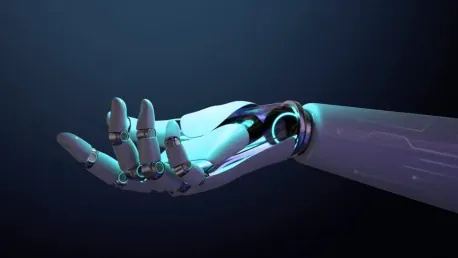Imagine walking into a hospital where autonomous humanoid robots assist doctors and nurses, manage inventories with precision, and ensure safety is never compromised. This scenario once seemed limited to the realm of science fiction, but it is rapidly becoming our reality. The cutting-edge collaboration between Apptronik, a firm specializing in AI-driven robotics, and Google DeepMind marks a pivotal moment in the creation of intelligent robots capable of transforming industries such as healthcare, manufacturing, logistics, and service. The advent of these advanced machines promises to enhance productivity, efficiency, and safety in unprecedented ways.
The Power of Autonomy and Adaptability
Autonomous Performance Across Industries
The collaboration between Apptronik and Google DeepMind aims to develop robots with a high degree of autonomy and adaptability. These robots will be equipped with sophisticated AI capabilities enabling them to perform various complex tasks independently. The ability to navigate human-centric environments is crucial for their deployment across different sectors. For example, in healthcare, autonomous robots could assist in surgeries, monitor patients, and even administer medications accurately. In manufacturing, these robots might take over repetitive and hazardous tasks, increasing productivity while reducing the risk of human injury.
The autonomous functionality of these robots is not just limited to performing tasks; they are designed to learn from their environment and evolve continually. The adaptability aspect allows these machines to customize their operations based on specific situational demands. For example, in the logistics sector, robots can learn the layout of a warehouse on the fly, optimizing routes to speed up inventory management. This dynamic learning capability also means that robots can seamlessly integrate into existing workflows without significant downtime, ensuring smooth transitions and minimal disruptions.
Tailored Adaptability for Diverse Environments
The adaptability of these robots extends to their ability to operate in varied and unpredictable environments. In the hospitality sector, these machines can provide exceptional customer service by learning guest preferences and tailoring their interactions accordingly. Similarly, in retail, robots can assist customers with finding products, offer personalized recommendations, and even manage inventory behind the scenes. This level of intelligent adaptability ensures that robots are not confined to monotonous or repetitive tasks but can contribute qualitatively to enhancing the overall customer experience.
Furthermore, the sophisticated AI algorithms powering these robots enable them to predict potential issues and take proactive measures. In healthcare, this could mean predicting patient needs based on historical data and adjusting their care protocols accordingly. In manufacturing, robots could predict machine downtimes and perform preventive maintenance, thereby reducing costly interruptions. The potential to foresee and mitigate challenges reflects a significant leap in the practical utility of robots, making them indispensable assets across industries.
Ensuring Safety and Precision
Navigating Sensitive Environments
One of the paramount concerns when integrating robots into human-centric environments is ensuring safety. This is especially critical in sensitive sectors like healthcare and construction, where the margin for error is minimal, and precise interactions with humans are non-negotiable. The collaboration between Apptronik and Google DeepMind places significant emphasis on developing robots that can operate safely alongside humans. Advanced sensors and AI algorithms are integrated to enable these robots to anticipate human movements and react accordingly, preventing accidents and ensuring seamless coexistence.
Robots designed for healthcare environments need to adhere to stringent safety standards. For instance, in surgical settings, the precision of robot-assisted surgeries is enhanced to such an extent that it surpasses human capabilities. This minimizes risks and ensures better patient outcomes. Similarly, in elderly care, robots can assist with daily activities, monitor health parameters, and provide companionship, all while guaranteeing the safety and well-being of patients. The accuracy and reliability of these robots become vital, further ensuring that their interactions are beneficial and secure.
Precision-Driven Innovation
Achieving precision in robotics is not just about meticulous design but also involves continuous innovation. Apptronik and Google DeepMind are leveraging state-of-the-art AI technologies to refine the precision of robotic movements and operations. This is particularly crucial in sectors like construction, where robots can take over tasks that require high accuracy, such as laying bricks, welding, or painting. The precision of these robots not only enhances quality but also significantly speeds up processes, enabling projects to be completed more efficiently.
Innovation in precision also encompasses the robots’ capability to handle delicate tasks. In the logistics industry, this means managing inventory without causing damage to goods. Advanced gripping technology, coupled with intricate AI algorithms, ensures that robots can handle various items, from fragile glassware to bulky machinery, with equal dexterity. This versatility and precision open up new avenues for the deployment of robots across sectors that demand meticulous handling and operations, further underscoring the transformative potential of this collaboration.
Overcoming Challenges in Robotics
Navigating Technical Limitations
While the advancements in robot intelligence are groundbreaking, numerous technical challenges persist. One significant hurdle is enabling robots to understand and interpret human emotions and unpredictability accurately. Current AI technologies still struggle with nuances like sarcasm, subtle body language, or sudden changes in human behavior. This gap in emotional comprehension can limit the effectiveness of robots in environments requiring nuanced human interactions, such as mental health care or customer service. Addressing these limitations requires more sophisticated AI models capable of deeper contextual understanding and empathetic responses.
The technical intricacies of creating robots that can seamlessly integrate into varied environments pose an ongoing challenge. Each industry has its unique set of requirements and operational norms. Developing robots that are versatile enough to adapt to different sectors without extensive customization is complex. For instance, the robots used in a healthcare setting must meet different safety and operational standards than those in a warehouse. This necessitates a modular approach to robot design, where core functionalities remain constant, but the robots can be tailored to meet sector-specific needs.
Societal Acceptance and Integration
Beyond technical challenges, societal acceptance of robots in daily life remains a significant barrier. There is often resistance from the workforce and the general public regarding integrating robots into the workplace and homes. Concerns range from job displacement to privacy and ethical implications of relying on robots for critical functions. Overcoming these societal barriers requires a multifaceted approach. Educational initiatives to inform the public about the benefits and limitations of robots, coupled with transparent ethical guidelines, can help build trust and acceptance.
Integrating robots into society also demands regulatory frameworks that ensure safe and ethical development and usage. Policymakers need to work closely with technology developers to establish rules and standards that protect against misuse while promoting innovation. For instance, guidelines on data privacy, ethical AI usage, and safety standards must be clear and enforceable. The collaboration between Apptronik and Google DeepMind also underscores the importance of involving multiple stakeholders in this journey, including industry experts, ethicists, and the public, to ensure balanced and inclusive progress.
Market Trends and Future Prospects
Growth in the Robotics Market
The demand for humanoid robots is on a significant upward trajectory, with market projections indicating substantial growth in the coming years. Estimates suggest that the global robotics market could reach $210 billion by 2025, driven primarily by advancements in artificial intelligence and robotics. This surge in demand is not just limited to industrial applications but also encompasses personal and service robots. For instance, home assistants, automated cleaners, and even personal chef robots are gaining popularity among consumers, reflecting a broader acceptance and reliance on robotic technology.
This market growth is also indicative of a broader trend toward automation and efficiency across industries. Businesses increasingly recognize the value of integrating robots into their operations to enhance productivity, reduce costs, and maintain competitiveness. From automating routine tasks in offices to deploying advanced robotics in manufacturing and logistics, the potential applications are vast. As AI becomes more sophisticated, the capabilities and versatility of robots will only increase, fueling further market expansion and innovation.
Security and Sustainability Considerations
With the growing reliance on robots, security and sustainability considerations become paramount. Ensuring the secure deployment of robots involves safeguarding against cyber threats that could compromise their functionality or data integrity. Additionally, developing sustainable robots includes using energy-efficient components and implementing eco-friendly practices in their production and operation. By addressing these aspects, the collaboration between Apptronik and Google DeepMind aims to create a new generation of robots that are not only intelligent and efficient but also secure and sustainable.
In conclusion, the future where robots support and elevate various industries is not just on the horizon; it’s here. The advancements spearheaded by Apptronik and Google DeepMind promise to revolutionize sectors by enhancing productivity, efficiency, and safety. These intelligent robots, with their autonomy, adaptability, and precision, are set to transform how we work and live, heralding a new era of robot intelligence.









